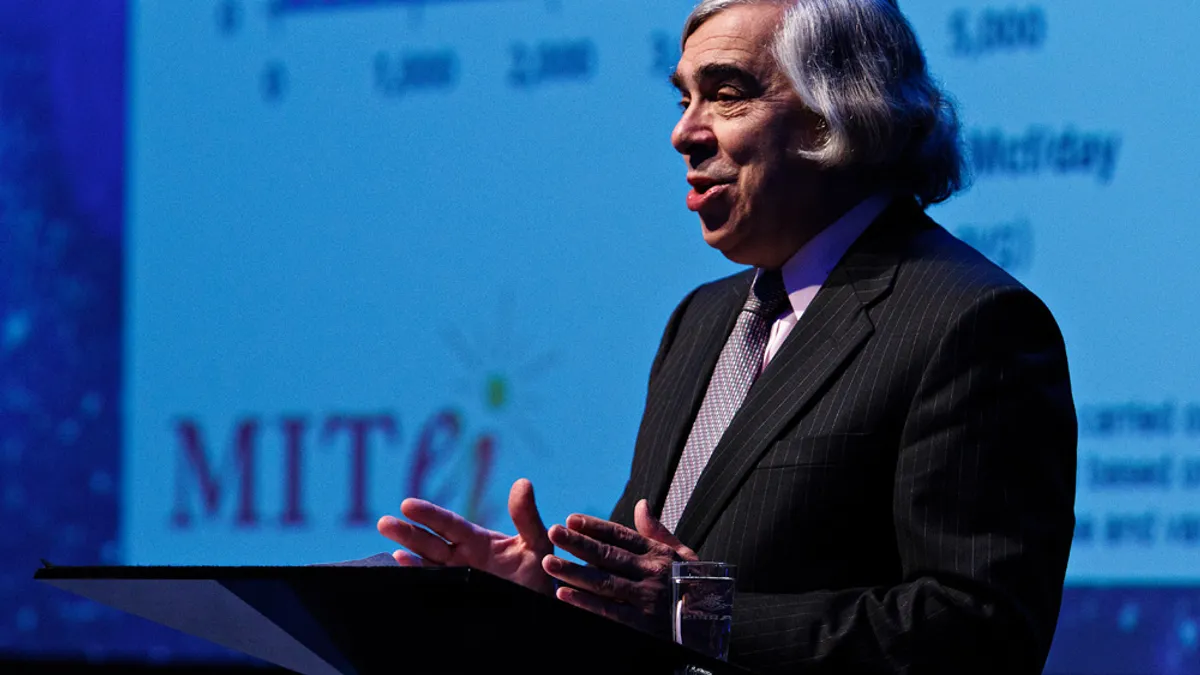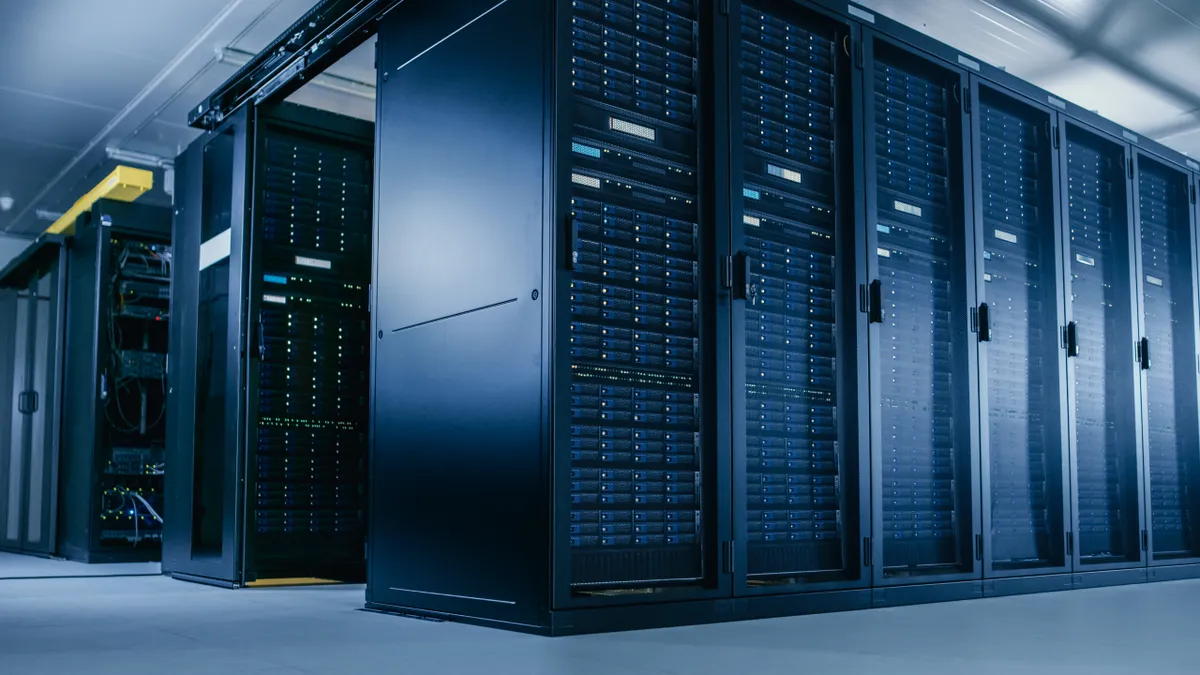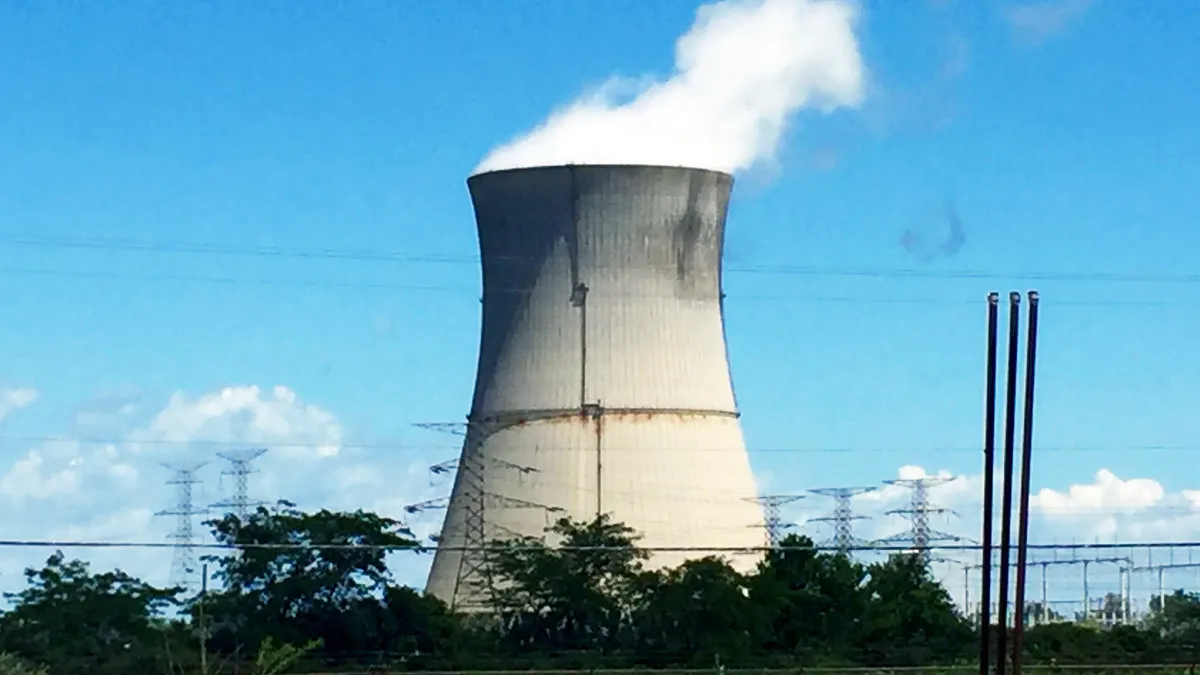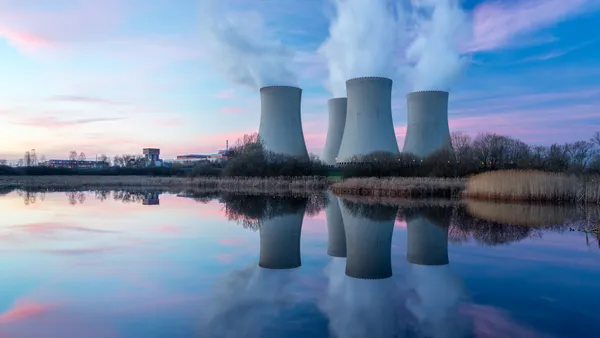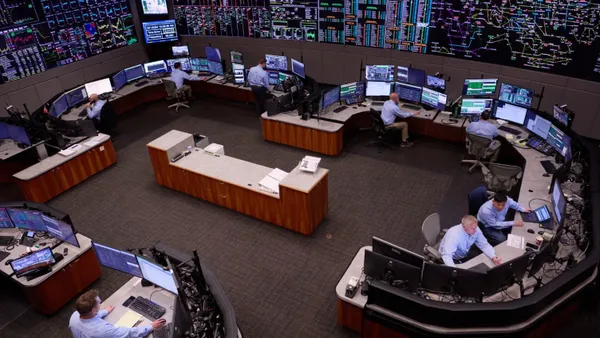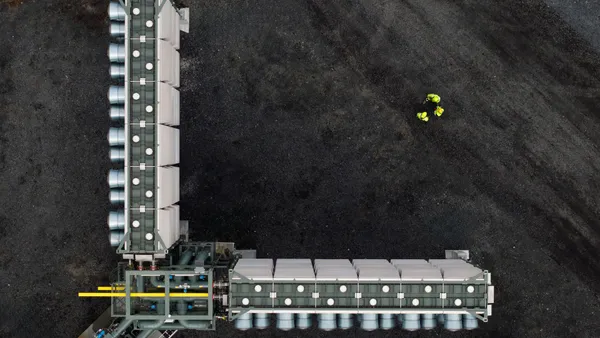Dive Brief:
- Department of Energy programs established under the Obama administration that want to continue once President-elect Trump takes office must show "value added" to be institutionalized into the DOE's structure, Secretary of Energy Ernest Moniz said on Thursday.
- Moniz spoke at the third anniversary of DOE's Minorities in Energy initiative, which supports programs to diversify the nation's energy workforce. He said the MIE has shown its value "in spades," and its director, LaDoris Harris, expressed confidence that it will survive the Trump years.
- Focusing on the economic and job creation aspects of DOE programs could help prove their worth in the new administration, multiple speakers said, while also benefiting the climate.
Dive Insight:
As the federal government prepares for the transition to a Trump administration on Jan. 20, one persisting question is the future of a number of Department of Energy programs established over the last eight years. From ARPA-E's support for basic research to MIE's diversity efforts, the Obama years have marked a shift toward a focus on clean energy and inclusion at DOE.
Whether that will continue under a president that has mocked renewable energy and eschews the politics of diversity remains unclear. While each DOE division will have a tailored response to prove its worth, Secretary of Energy Ernest Moniz said there's one overarching theme for the department this transition.
"If you want to institutionalize something, show value added," Moniz said. "I think MIE is satisfying that in spades in terms of a lot of value added. This is something the next administration certainly I believe needs to continue, needs to amplify."
The Minorities in Energy initiative, now three years old, is housed in the DOE's Department of Economic Impact and Diversity. Director LaDoris Harris said that division's long history will help preserve the MIE's work into the next administration.
"The Office of Economic Impact and Diversity is almost 40 years old, and the mission of that office is to pay attention to underserved comminutes, minorities, and economic development and education," she said. "So the beauty of MIE is that it falls very closely into the mission of the office already, which has survived multiple administrations."
MIE is already budgeted through 2017, she added. "There's a lot of policy and directives and congressional budget approvals for this project, so it will live past this administration."
The task for many DOE initiatives may be made easier by a recent focus on jobs and infrastructure development at DOE — two of Trump's focus areas during the campaign.
In his speech, Moniz highlighted the "new direction" DOE took two years ago when it established a jobs strategy council with energy and labor leaders.
"If we don't address a jobs strategy and an inclusiveness strategy, all we're going to get is headwinds when we are trying to address these other big challenges like climate change," Moniz said. "We've got to turn those around and make tailwinds and we'll do that when we pay strong attention to effective ways of advocating good jobs for everyone in our society."
One of the DOE's first hires for the jobs council was Dave Foster, the former director of the BlueGreen Alliance, a coalition of labor and environmental groups. He said a big opportunity for clean energy deployment and decarbonziation could come by playing on Trump's desire for an infrastructure buildout.
"When I was with BlueGreen we did a deep dive of the climate benefits and job benefits of bringing America's infrastructure up to a grade B, as rated by the American Society of Civil Engineers, and the job creation was in the millions of course, but the GHG benefits were very substantial as well."
Despite Trump's expressed contempt for wind and solar, Foster said there's hope his infrastructure plans will include opportunities for both labor and clean energy.
"I certainly have talked to a lot of people in the building and construction trades, particularly in the New York area, and they've told me they never had a problem getting project labor agreements done on Trump development projects, certainly in areas where their skills and labor are critical to getting a job done on budget and on time," Foster said. "My advice is to have a wait-and-see attitude about that."
In the coming years, Foster said a focus on infrastructure could be a productive one for environmentalists as well.
"Spend on infrastructure. Do it because it's good for jobs and the climate, and you don't even have to say climate — it's a gimme."


